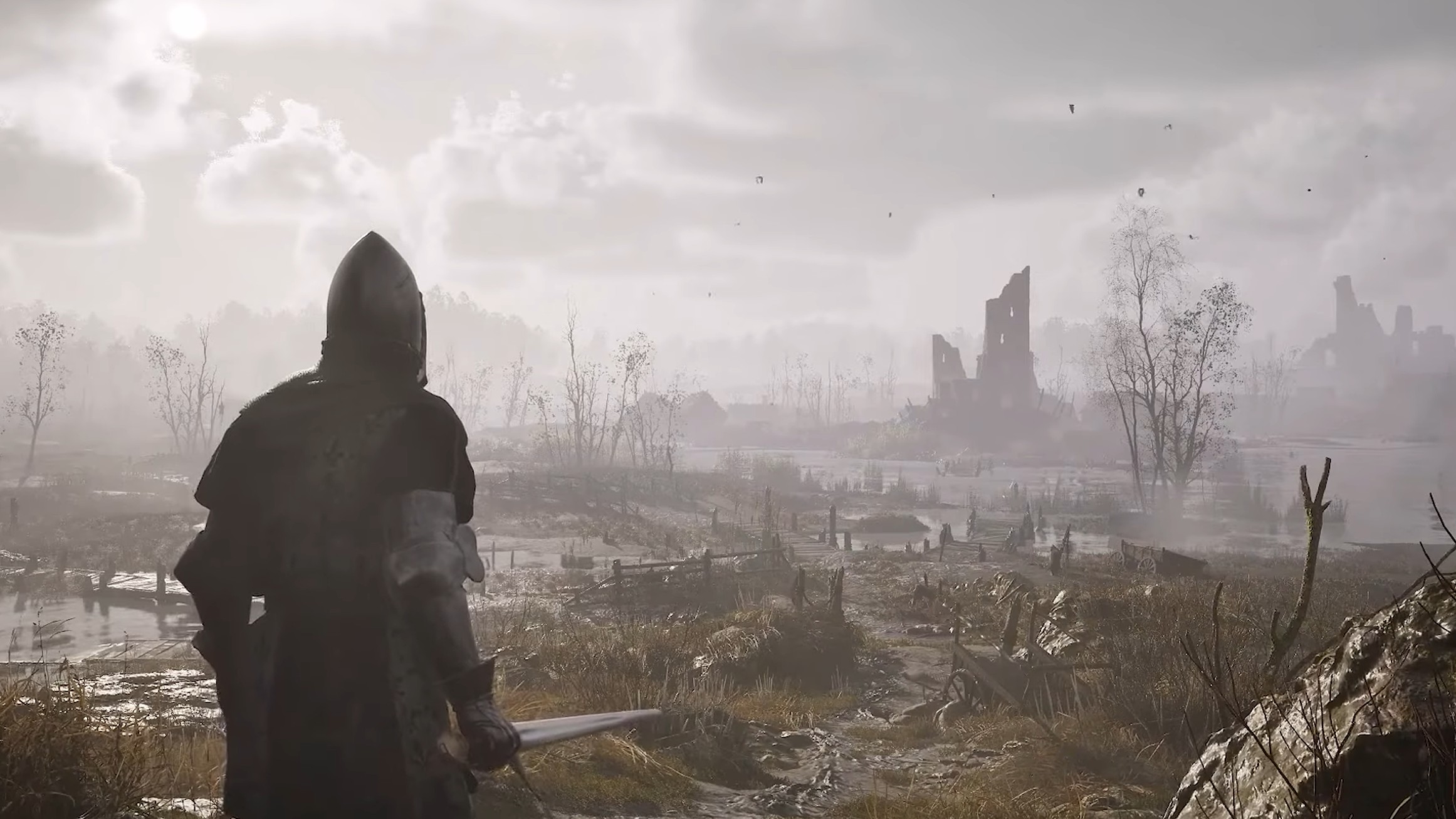
The Lord of the Rings: The Rings of Power Season 2, Episode 6 Review
This review contains full spoilers for The Lord of the Rings: The Rings of Power season 2, episode 6
The writers are forcing conflicts that feel out of character and obviously unnecessary in the deeply frustrating sixth episode of The Lord of the Rings: The Rings of Power’s second season. As the show gears up for big fights across Middle-earth, things aren’t looking good for anyone but Sauron (Charlie Vickers), who solidifies his control over the master elven smith Celebrimbor (Charles Edwards) and the city of Eregion.
The episode opens by catching up with Arondir (Ismael Cruz Córdova) happening upon some orc deserters fed up with helping Adar “chase a ghost.” He makes quick work of them and finds a map leading to their camp, where he’ll hopefully be able to help Galadriel (Morfydd Clark). But besides demonstrating how the plots will come together, the scene shows how much Adar (Sam Hazeldine) is losing control while pursuing his vendetta against Sauron. It feels like everyone would have been better off if he just stayed in Mordor.
Adar makes a compelling pitch to Galadriel. She’s a kindred spirit, one of the few people who really understands that Sauron’s greatest power is how skillfully he plays on other people’s desires. “Sooner or later he sees you, not just who you are, but who you wish to be,” Adar explains. “He makes you believe that his power has become yours – irresistible power.” Sauron granted his wish for children and gave Galadriel her army, and it’s haunting how Galadriel echoes Adar’s sentiment that the world feels drained of color now that they are no longer basking in the light of Sauron’s attention and seeming affection.
But that makes what follows all the more infuriating. Adar has a great plan: Combine Morgoth’s crown and Galadriel’s ring to kill Sauron and ensure that he stays dead this time. But as soon as Galadriel agrees to the team up – even putting aside her prejudices to call Adar’s forces uruk instead of orcs – he immediately betrays her. Sure, there are elves that would want to exterminate all of the orcs, but if you had the greatest elven general vouching for you after you helped her rid the world of an existential threat, your argument for being left alone in Mordor would be a lot stronger. Adar knows Sauron is a master manipulator, yet he’s unwilling to entertain Galadriel’s pleas that he’s playing right into his hands by bringing an army to his doorstep. Maybe he was blinded by Sauron getting to him during his brief captivity in Mordor, but it just seems like such a misplay after Adar so expertly bested everyone last season.
Also when did Adar realize Halbrand was Sauron? Did he figure out he’d used the Black Speech to control the warg? If he had any reason to suspect before then, why not just stab him again with the crown and give himself a few more centuries to establish power while Sauron rebuilds himself out of worms? This season shows how well Sauron can play on people’s pride and fears; he doesn’t also need to win by default because his opponents are acting foolishly.
The best demonstration of Sauron’s power remains Celebrimbor. His slow progress in crafting the nine rings for men has left him so agitated that his workshop is filled with discarded metal and rats, and he can’t even remember one of his primary smith’s names. (Thus presenting Charles Edwards with an appropriately Shakespearean rant about the fickle nature of metal.) This leaves Sauron room to step in and seize control of Eregion. His costume has grown more grand to establish himself as an elven lord rather than just Celebrimbor’s mysterious muse; he pushes Celebrimbor to walk the line between madness and brilliance as he fully isolates him. In another stroke of luck, the warning message Adar’s forces carve into a returning scout is in a language only Sauron can read. Maybe Adar should have taught more of his children the Elven tongues?
The writers are forcing conflicts that feel out of character and obviously unnecessary.
Continuing work on the rings requires more mithril from Khazad-dum, which hasn’t been making deliveries because King Durin III (Peter Mullan) is accumulating a horde of treasure that would make the dragon Smaug proud. Sauron comes personally to retrieve his metal, promising wood for the expanded mining operations or “something more precious” in a bit of foreshadowing to a word that will be closely associated with the One Ring. The king’s refusal demonstrates Sauron doesn’t quite have full control over his creations, though a glimpse of the Balrog in the flames makes him leave seemingly content in the understanding that Durin’s defiance won’t last long.
The relief that Durin IV (Owain Arthur) feels about his father refusing to give more materials to the shady craftsman is short-lived – the king reveals this is all just a negotiation tactic. “The whole world’s gone mad, my son,” he says while laying out his plans to become Middle-earth’s preeminent arms dealer. J.R.R. Tolkien was haunted by his service in the British Army during World War I, and the horrors he experienced on the battlefield resonate throughout The Lord of the Rings. This scene conjures similar nightmares, pushing Durin IV to try desperately to reach his father one more time. But neither words nor physical attack will pry the ring from his finger, and in fact the jewelry seems to imbue the king with uncanny strength.
What we said about season 2, episode 5 – “Halls of Stone”
Episode 5 of The Lord of the Rings: The Rings of Power is the strongest episode of season 2 so far, focusing mostly on leaders falling under corrupting influence. The family conflicts in Khazad-dûm and Sauron pushing Celebrimbor to the edge provide some poignant pathos that demonstrates just how one dimensional the characters in Númenor are by contrast. – Samantha Nelson
Score: 7
Read the complete The Lord of the Rings: The Rings of Power Season 2, Episode 5 Review
Luckily, the younger Durin has a fantastic wife in Disa (Sophia Nomvete). Their relationship is a true anchor of Rings of Power’s storytelling: She gives him the strength to confront his beloved father’s weakness and stands by him to face down miners with the help of some summoned bats. While darkness descends on Middle-earth, the couple is a testament to the power of love and fighting for what is right.
Love also finds a way in probably the best visit to Númenor this season, which is admittedly a low bar to clear. Elendil (Lloyd Owen) is charged with high treason and inciting a riot and Pharazôn (Trystan Gravelle) plays at being merciful, prompting a lot of theatrical noise from the assembled crowd when Elandil is offered the chance to pledge his loyalty. This just leads to him loudly declaring his allegiance to Míriel (Cynthia Addai-Robinson) again, and Pharazôn’s advisor suggesting his execution take the form of the ancient trial by abyss.
Elendil’s daughter Eärien (Ema Horvath) comes to the dungeon to beg him to reconsider in a mirror of the similar Game of Thrones scene between Sansa and Ned Stark. At least Eärien understands her dad is way more devoted to Míriel than he is to her, and gets the deposed queen to try her hand at persuasion too. But the problem with religion is it’s hard to convince your devoted disciples to be traitors rather than martyrs.
What follows is a neat spin on the Greek myth of Andromeda, where Míriel is the one doing the rescuing of her brave sea captain by stepping in to accept judgment on his behalf. Míriel’s descent into the shimmering glow of the pool makes for a dramatic scene. Resplendent in her white robes, she’s dragged underwater by a monster that resembles an enormous, tentacled goblin shark. Much like when Sauron faced the sea monster that sunk his ship without fear and was left untouched, Míriel’s faith (and perhaps her blindness) sends her back to the surface where Pharazôn has to accept that his plan has horribly backfired. He’s failed to eliminate an enemy and given the leader he usurped the evocative new title of “queen of the sea.” Seeing both Sauron and the fires of Mordor in the palantir can’t spell good things for Pharazôn either.
Love finds a way in probably the best visit to Númenor this season – though that’s a low bar to clear.
The Stranger (Daniel Weyman) also receives a warning: He needs to stop training with Tom Bombadil (Rory Kinnear) and find Nori (Markella Kavenagh) before something terrible happens to her. When he explains his predicament, Bombadil responds “Many that die, deserve life and some that live deserve death. Who are you to give it to them?” It’s an inversion of the speech that Gandalf gives Frodo in The Fellowship of the Ring to argue in favor of Bilbo showing Gollum mercy, while Tom uses it to encourage the Stranger to ignore Nori and focus on his destiny. This feels like an obviously false choice – if the Stranger is meant to be a force of good fighting the Dark Wizard and Sauron, it really doesn’t seem like he’d start by turning his back on friends to go look for the right stick.
The Harfoots grapple with the trouble they’ve brought upon the Stoors. There’s a nice clash of cultures as Nori is baffled by why they don’t just pick up and leave while Gundabel (Tanya Moodie) tells the sweet story of how deep her people’s bonds to the land are, harsh as it may be. It also drives home just how weird the Harfoots’ ancestors were for being willing to give that up. While Nori gets the noble idea to leave, Poppy (Megan Richards) persuades her to stay and fight with the Stoors rather than potentially being used as leverage against the Stranger. It’s cute when Poppy and Merimac (Gavi Singh Chera) sneak a little kiss while preparing for battle, but they were milking a snake right before locking lips. Where does it go? I’m way more concerned with that than Merimac’s lizard breath.
But vanishing snakes are small potatoes compared to Sauron’s trap snapping closed at the end of the episode. Adar begins his attack, and Celebrimbor finally falls out of his reverie long enough to get into a brief fight. But as Galadriel was previously warned, Sauron has the power to fully control the perceptions of those whose minds he’s wormed his way into. He demonstrates this by painting over the chaos that’s come to Celebrimbor’s city with a vsion of peace and wonder where children play, artists work, and beautiful dogs and horses just wander around.
Sauron makes a final pitch, offering powdered mithril he’s somehow acquired and telling Celebrimbor “When the history of this age is written, the Silmarils will merit little more than a whisper. Your rings, the Rings of Power, they will be deemed the most precious creations in all Middle-earth.” It’s a very meta argument, again using the word precious to describe the rings while also pointing out that the great wonders of the First Age are relegated to Tolkien’s legendarium while the rings are now the subject of the most expensive TV show ever made. If only that show were better. Its budget certainly makes every scene shine, but it has so few moments of real power or impact it feels unlikely to actually become the stuff of legends.








